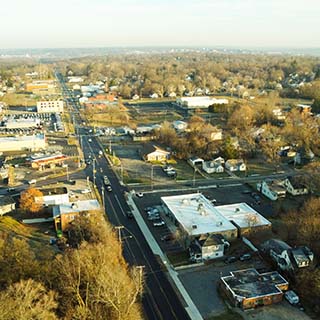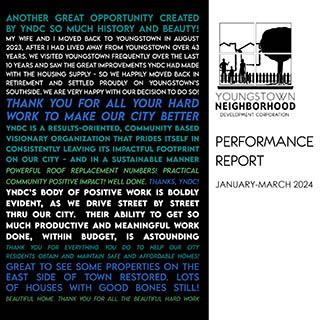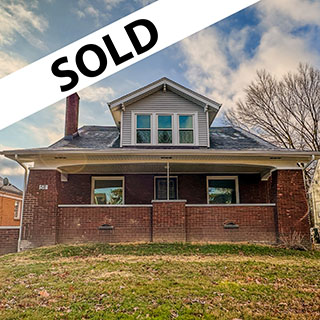City council agreed to increase the amount of a remediation and partial demolition of 20 Federal Place by more than 22% to correct a mistake when the initial legislation was approved and to cover additional costs for the work. The initial ordinance, approved Nov. 15, 2022, had the project’s cost at up to $6.25 million. Charles Shasho, the city’s deputy director of public works, said he made an error in the initial proposal. Council agreed Tuesday to increase the project’s cost to up to $7.65 million.
The city received a $6.96 million Ohio Brownfield Remediation grant, announced in June 2022, for the project. So the $6.25 million in the November 2022 legislation already was too low by about $750,000. The city hired Daniel A. Terreri & Sons, a Youngstown company, in March 2023 for the work at a cost of $6.98 million. The price went up to $7.07 million in October because of the need to remove additional ceiling and floor tiles, Shasho said. While the administration is asking council to increase the price to $7.65 million, Shasho said he expects it to cost just under $7.5 million, but wants a little cushion in case of unforeseen issues. “Once they started the project there were things uncovered in the walls,” city Finance Director Kyle Miasek said. “There were unknown costs we learned about as they did the project.”
Councilman Mike Ray, D-4th Ward, said once the project is finished, the environmental concerns at the city-owned building will be resolved. That will make it easier to sell the building at 20 W. Federal St., he said. In addition to the $6.96 million state grant, the city provided $2.32 million of its own money for the work at 20 Federal Place. That includes paying a portion of the Terreri contract as well as about $500,000 in architectural designs and costs related to seeking additional grants for the building. The project, which started in April 2023, has been delayed repeatedly. It was supposed to be done in November, then February and just a month ago, Shasho said it would be finished April 1. Now, Shasho said the “substantial completion” date is April 15.
But demolition work to the rear of the building requires masonry work to close that space and that won’t be finished until May 31, he said. Deputy Law Director Adam Buente said Tuesday that Desmone Architects, the Pittsburgh firm that is involved in planning the redevelopment of the building, took a potential redeveloper on a tour of 20 Federal Place last week. The city is looking for a company to redevelop the building. A Desmone umbrella organization, 20 Federal Place LLC, has a 40-year lease on the building, Buente said. But there are benchmarks in the lease that Desmone must achieve at specific times, he said. If they’re not reached, the city can rescind the lease, he said. Without the city’s knowledge, Desmone reapplied and received a $10 million state historic preservation tax credit for 20 Federal Place, announced Dec. 21. That also comes with $14 million in federal historic preservation tax credits. Under historic tax credit rules, a government entity, like Youngstown, isn’t eligible for those dollars and the money must be awarded to a private group. Desmone’s application for the tax credits states an $82,137,690 project is planned at 20 Federal Place though no project has been finalized and the search for a redeveloper is ongoing. The city purchased the building in November 2004 after Phar-Mor, a national retail store company, went out of business. The property was the Phar-Mor Centre, the company’s corporate headquarters. Before that, it was the flagship location of Strouss’ department store for several decades. The city has unsuccessfully tried to sell the building in the past. There were 19 tenants, taking up about 20% of the 332,000-square-foot building before eviction notices were sent in July 2022.
CITY BUDGET
Council also voted 7-0 Tuesday to pass a $209.7 million budget for 2024. The city plans to hire 11 more police officers and three more firefighters this year and would seek to add more hires in both departments should current employees leave, Miasek said. The city also wants to add three employees this year to the community planning and economic development department including a chief planner, a position that has been vacant since March 2009. The city went through the process last year of testing for the job and four people met the requirements. But the administration decided not to hire any of the candidates. Among the larger purchases planned for this year are $600,000 for a new sanitation truck and $1.2 million for the street department, including two new snowplows for about $300,000 each as well as $600,000 for new police vehicles. The city ended 2023 with $52,481,100 from its 2.75% income tax and business profit tax. That’s an increase of 3.15% from the $50,879,800 the city collected in 2022. Miasek had predicted a 2.4% increase. It was a record high income tax collection amount for the city. Miasek expects an increase of about 1.5% to 1.7% in 2024 though that could change.
ARP SPENDING
Council voted 7-0 to spend $48,000 in American Rescue Plan funds to have MBH Construction upgrade the wooden walkway and steps to the deck at the Spring Commons Park to concrete.
It voted 5-2 to give $52,000 from Councilwoman Antia Davis’ 6th Ward ARP fund for the Youngstown Neighborhood Development Corp. to do renovations and improvements to Beyond Expectations Barber College on Glenwood Avenue.
To read the full story from The Vindicator, click here.








